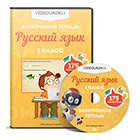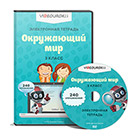| III. New lesson | We continue our theme Health problem. Look at the blackboard. We have a new words. Listen to me and then repeat after me please. health [hel] – денсаулық food [a:m] – тағам important[iә] - маңызды protein [t∫est] – протеин fat [tou] –май teenager [fut] – жастар Exercise 6, page 106. Now read the text and see how many of your words you can find. Health farm 1. “Thousands of teenagers are overweight”, says Health farm manager Mr. White, “many teenagers often do not know how to eat well and stay healthy, like Karen”. 2. Karen was 13 years old. She weighed 110 kilos and was 1.55 m tall. Karen usually had a large bowl of cereal with a few spoons of sugar for breakfast. At school she always bought a chocolate at break time and every lunch time she had fried chicken and chips. In the evening Karen usually had more fried food and she often ate a packet of biscuit or a box of chocolate in front of the television. She sometimes went out for a take – away Chinese meal or pizza before going to bed. Karen never ate any fruit and she rarely had fresh vegetables. Her main exercise was changing the tv v channel or opening the fridge door. 3. Health Farm helped Karen with her diet and exercise plan. She now eats lots of fresh fruit and vegetables and goes swimming regularly – she never did any sport before because she was always so worried about her size. She now weighs 60 kilos and is still losing weight. 4. Mr. White says, “Teenagers” often come to the Farm depressed and with very little confidence. When they leave us they are usually happier and much more confident about themselves”.
Exercise 8. Group A Write a list of Karen’s bad habits before she went to health went to Health Farm. the name of.
Group B Write a list of Karen’s good habits after she went to Health Farm.
Open your book at page 107, exercise 9. When you finish, find a partner from the other group and swap information.
Look at the exercise 10, page 107. Look at these examples. 1. She never did any sport before. 2. She was always so worried about her size. What is the position of the adverb in: a) sentence 1: b) sentence 2. Complete the rules about adverbs of frequency. With the verb to be the adverb of frequency comes ….
With other verbs it comes… B. These are adverbs of frequency: Always, never, often, rarely, sometimes, usually.
Open your at book at page 107, exercise 11. Look at the text in exercise 5 and find sentences with adverbs of frequency. Which adverb is used frequently?
Look at the at page 108, exercise 12. Put adverbs in brackets into the correct place in the sentences.
Overweight teenagers eat the wrong kind of food, (usually) They are depressed about their weight, (often) They eat fresh fruit and vegetables, (rarely) Helen ate fruit when she was younger, (never) |
Usually, always, never, sometimes, often, rarely Әдетте бұл үстеулер мағыналық етістіктің алдында қолданылады I usually get up at seven o’clock I don’t often go to the cinema. She never eats bananas. We always watch TV in the evening. I sometimes go swimming.
1.Overweight teenagers usually eat the wrong kind of food.
2.They are often depressed about their weight. 3.They rarely eat fresh fruit and vegetables. 4.Helen never ate fruit when she was younger. |















